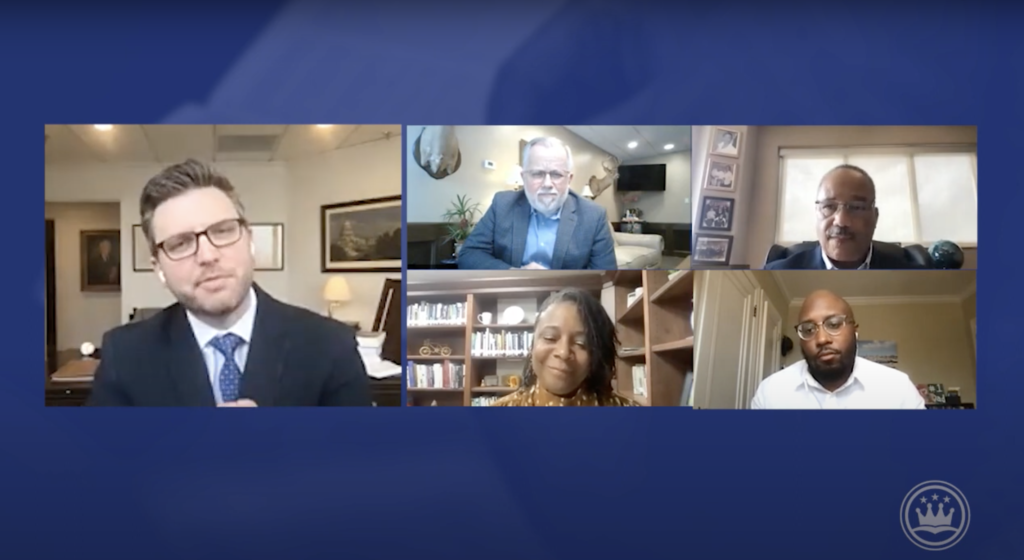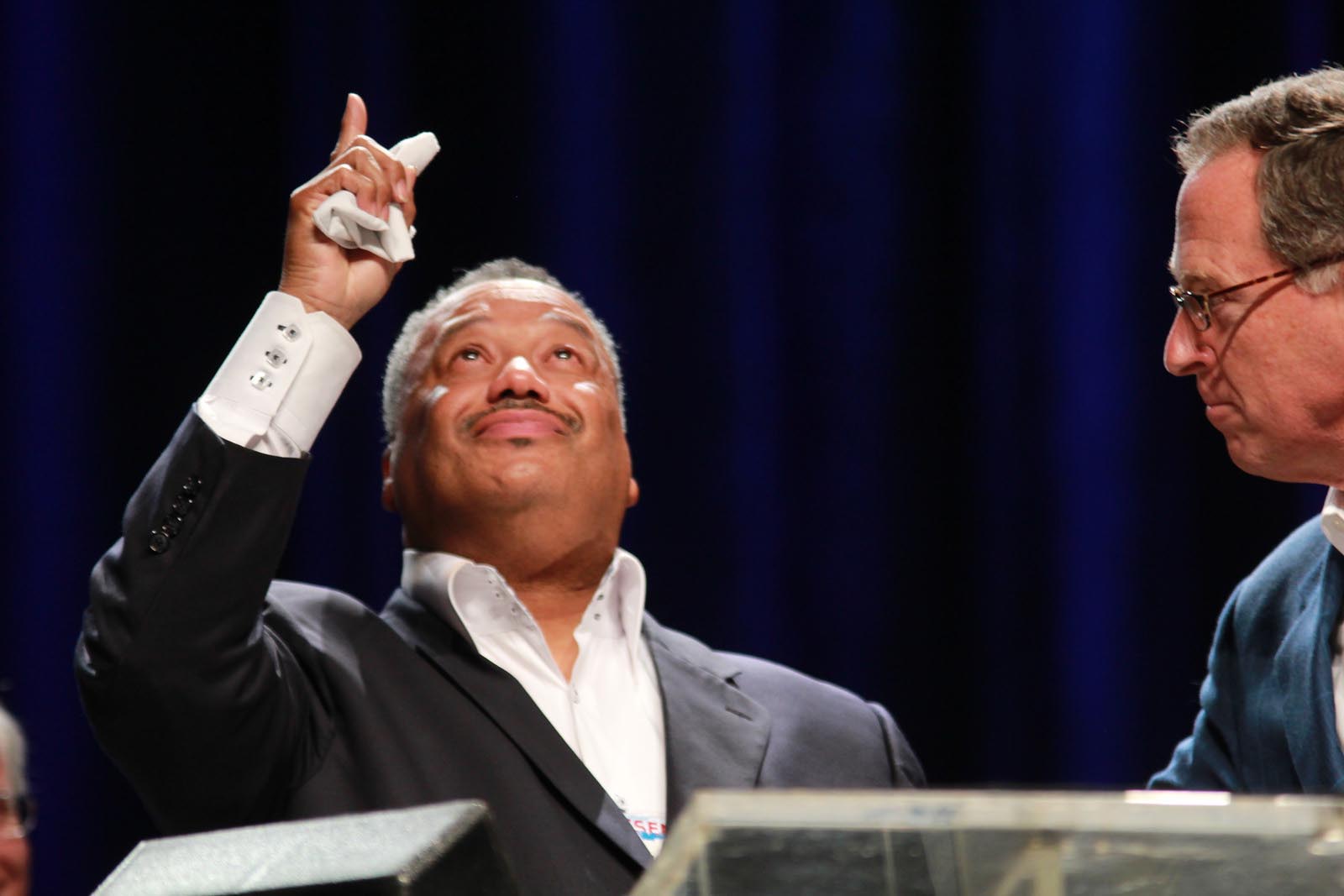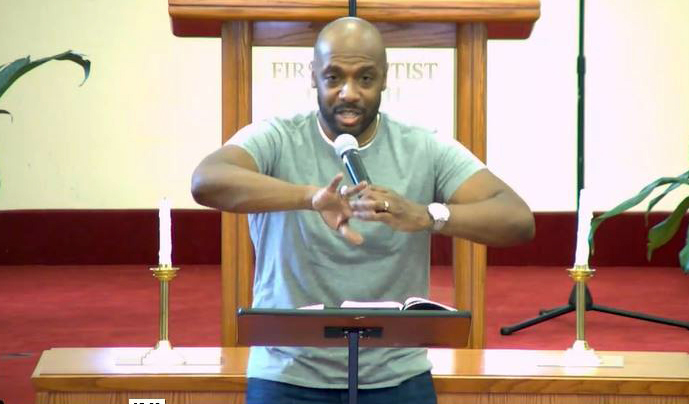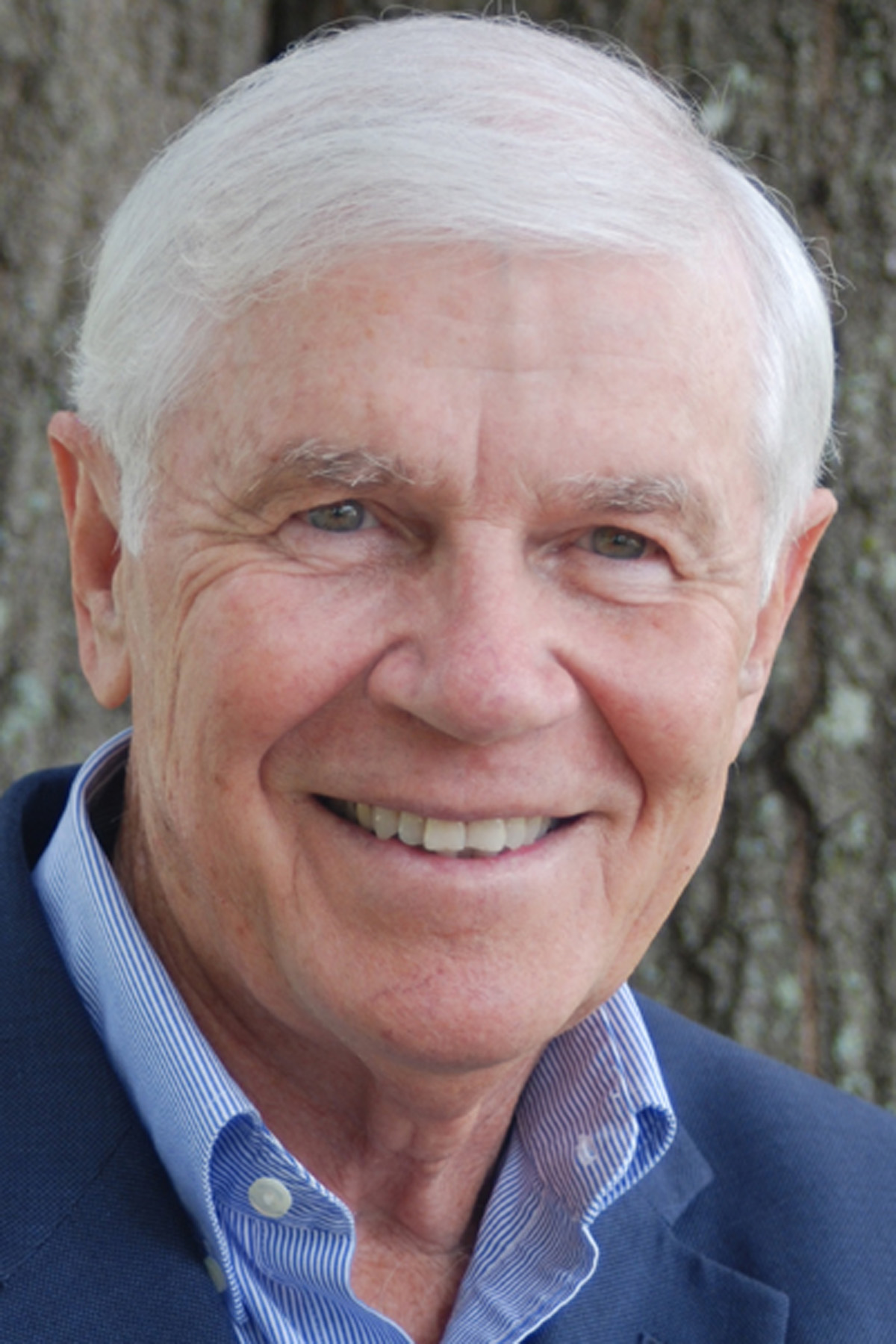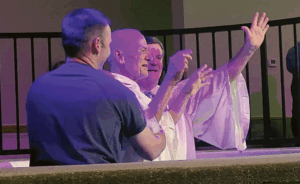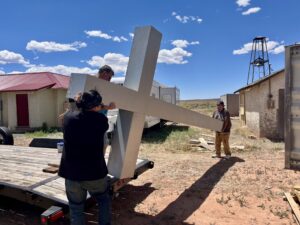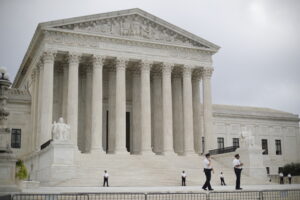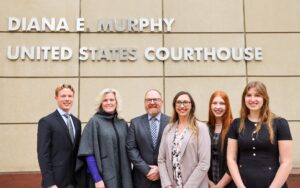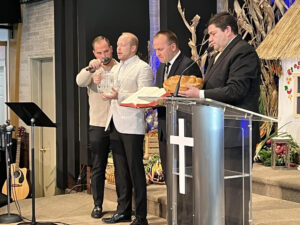
NASHVILLE (BP) – Achieving racial reconciliation calls for building friendships over a meal, the audience for a Southern Baptist-sponsored conversation was told Wednesday (Feb. 23).
In an online event hosted by the Ethics & Religious Liberty Commission (ERLC), four Southern Baptist panelists – including both the current SBC president and the convention’s only African American president – addressed ethnic relations under the title “Pursuing Unity: A Discussion of Racial Reconciliation Efforts and the SBC.” The webinar may be accessed here.
“It doesn’t matter how many panel discussions you watch,” Chicago pastor Jon Kelly said.
“It doesn’t matter how many books you read, how many conferences you go to. None of that will do better than dinner table ministry.”
Kelly urged viewers to consider their five to 10 closest friends and ask themselves why everyone “looks like me, votes like me, thinks like me in such a diverse world.”
“[T]he biggest challenge we have is when we talk about racial reconciliation we want the fruit of reconciliation without the relationships,” said Kelly, lead pastor of Chicago West Bible Church. “[U]ntil our dinner tables become diversified, you can’t hire this away, you can’t appoint this away. Until we eat bread together and fellowship together, we won’t make any progress.”
Ed Litton, current SBC president, told viewers that pastors in Mobile, Ala., began gathering to solve race problems but instead spent two years eating lunch together and talking.
“But what emerged from that was God transformed our hearts with one another,” said Litton, senior pastor of Redemption Church in Saraland, Ala., a suburb of Mobile. “We fell in love with one another, and we started serving the Lord together.”
Litton is asking Southern Baptists to “initiate this kind of love for one another,” he said. “Start to get to know each other. Listen to each other. Humble yourself to learn something you thought you knew and understood, but you didn’t.”
Messengers to last year’s SBC annual meeting in Nashville communicated their desire for progress in this area, Litton said.
“[T]he message that came through very clear is that this convention wants to deal with [sexual] abuse and wants to deal with racism,” he said. “We want to deal with having racial reconciliation. And I take that as a mandate.”
Southern Baptists have made some notable advances in racial reconciliation, said Fred Luter, who was elected in 2012 as the SBC’s first African American president.
He has “seen this convention grow in leaps and bounds as far as including non-Anglos in leadership roles, and I think that’s the key,” he said. “It’s one thing to say that we are racially connected, but if it doesn’t show across the board in positions of leadership, I think that’s where we miss the mark at.”
Luter cited the recent selection of Willie McLaurin as interim president and chief executive officer of the SBC Executive Committee and the 2020 election of California pastor Rolland Slade as the committee’s chairman.
Challenges remain in the SBC, the panelists told the audience.
“[T]he lack of humility and the tone of the things that are discussed,” especially on social media, has made his efforts with potential church planters through the North American Mission Board’s Send Network difficult, Kelly said.
“It’s one thing for Christians to disagree,” he said. “I think what’s very discouraging for me is the sarcasm and tone and the belittling, and the way that we do it I don’t think we realize kills our witness, especially when it’s coming from men and women who profess Christ and who have roles within denominations, and our pastors as well. And I think being slow to speak, quick to listen, slow to anger would really help us all.
“It’s been a serious blow for the work of missions – trying to talk to minority church planters about partnering with Send, which is a great network, when all they’re looking at is what someone posted or what someone said and what’s making the news.”
Missie Branch, assistant dean of students to women and director of graduate life at Southeastern Baptist Theological Seminary, said a “unified Christian message” and “courageous leaders” are needed.
“So many people are saying so many things about what it means or what we should be talking about or what we shouldn’t be talking about,” Branch said. “And to the world, we’re not able to present a unified message of what it means for us to come together as believers in Christ from every color, every stripe, every economic background.”
Also, she said, “it takes a level of courage for a leader to say, ‘We’re going to say the things that need to be said, and we’re going to preach the Gospel the way it needs to be preached, and we’re going to pursue unity in spite of the fact that this might cause this group of people to be upset.’”
The primary challenge, Luter said, is God’s people “must recognize the enemy’s attack in all of this. This is spiritual warfare of the enemy that we cannot as blood-washed, born-again, baptized believers in Jesus Christ come together, realizing the separation that we have because of our skin color is an attack of the enemy.”
Public discourse, especially on social media, regarding the issue “is at a low,” Litton said.
“What we need is to fear God before we ever hit a ‘Send’ key,” he told viewers. “We need to fear God before we take on somebody and attack their character and diminish the work of the Gospel in their community.
“But the hope that we have is the Gospel that we preach. We need to preach it to each other; we need to preach it to ourselves; and we need to preach it to a lost world. And they’re saying, ‘Well, do you live by what you preach?’”
Branch said, “[O]ne of the things that I think we’re bringing to the table too is this almost prideful ideal that someone else is more sinful than we are. So when we are speaking to people, we’re not coming with the humility of: ‘We’re all broken, and we’re all a mess. And there are hurdles you have to jump to get to the middle, and there are hurdles I have to jump to get to the middle.’”
Kelly and Luter responded to a question about the departure of some influential black pastors from the convention. Some left when the presidents of the six SBC seminaries issued a statement in November 2020 that said “affirmation of Critical Race Theory, Intersectionality and any version of Critical Theory is incompatible with the Baptist Faith & Message.” The statement reaffirming the BF&M 2000, the SBC’s confession of faith, also condemned “racism in any form.”
The National African American Fellowship (NAAF) of the SBC objected to the seminary presidents’ broad condemnation, saying it had “the effect of delegitimizing and dismissing the lived experiences of African Americans and other ethnic groups.” The NAAF said, “[C]ertain limited insights from CRT, not as an ideology or worldview, can be useful to identify and repudiate racial bias and systemic racism in organizations and institutions.”
His church “wrestled with the tension” in 2020 involved in its affiliation with the SBC and decided to stay, but those who chose not to leave should humbly ask those who did the reasons for their departures and what can be learned, Kelly said.
Minority pastors and church planters “can’t preach the Gospel without getting over the hump of history,” Kelly told the audience. “I can’t go talk to a guy on the corner without him saying, ‘Well how do you believe in a Jesus that was given to you from slave masters? Well why would you be a part of a convention that was founded upon slavery?’
“Other people don’t have to answer that question,” he said. “And I don’t think we realize the hump that that takes to get over when you have to articulate the Gospel in the midst of historical context and historical narrative for people in your context. And so I can understand why there have been men and women whom we all love and respect who have decided to transition because they felt like that was too much to bear.”
The seminary presidents’ statement “really caused havoc across this convention and particularly in African American churches,” Luter said. Some members of Franklin Avenue Baptist Church even requested it leave the SBC, he said.
He respects and admires each of the pastors who left, but Luter said he wishes they had discussed their differences with those they disagreed with and attempted to resolve them.
After the seminary presidents issued their statement, Luter talked to three of them “personally and got insight on what happened and why they thought it was necessary to do that,” he said. “And after sitting down and talking to them one on one, … we were able to come with some understanding — apologies, forgiveness and working things out – that we could work together again.”
Brent Leatherwood, the ERLC’s acting president, moderated the discussion.
